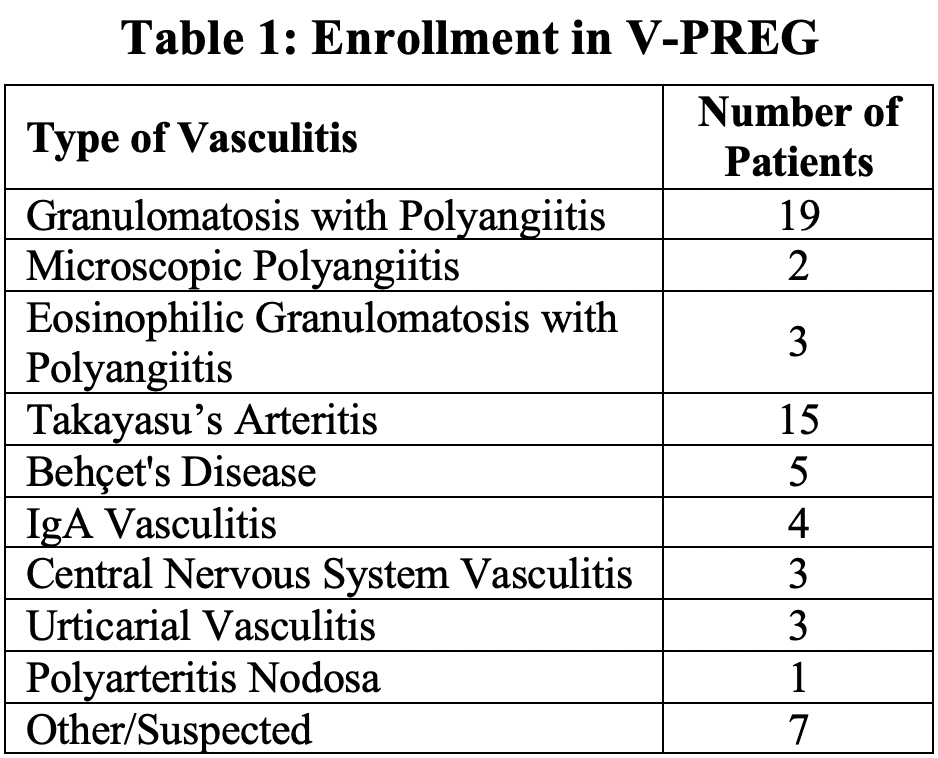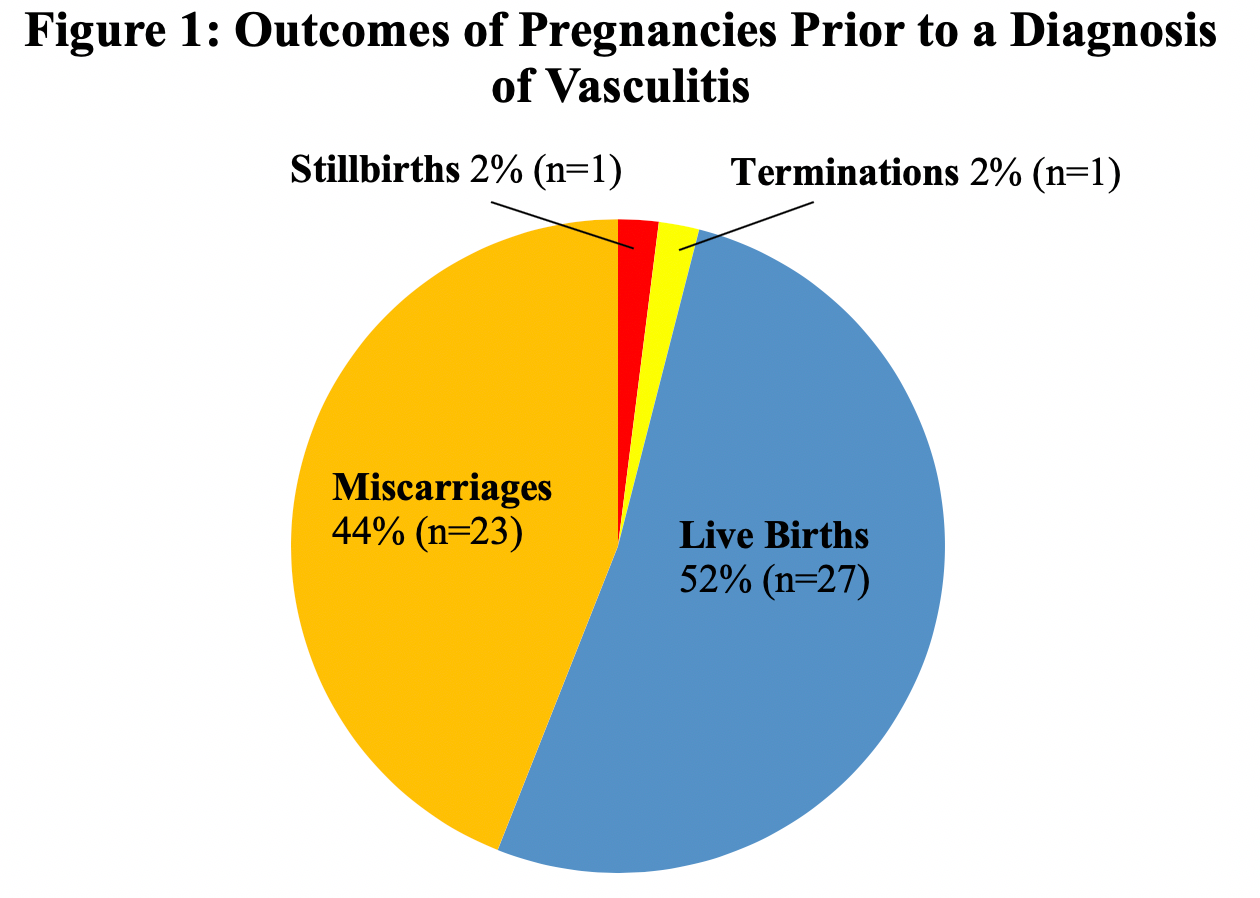Session Information
Session Type: Poster Session (Tuesday)
Session Time: 9:00AM-11:00AM
Background/Purpose: As outcomes for patients with vasculitis improve and treatments become less ovarian-toxic, more women with these diseases will become pregnant. How best to manage these pregnancies remains unclear and, given the rarity of these pregnancies, challenging to study. The Vasculitis Pregnancy Registry (V-PREG) is an online, patient-driven prospective pregnancy registry designed to collect observational data to increase our understanding of pregnancies in women with vasculitis [www.vpprn.org/VPREG].
Methods: V-PREG is imbedded within the online Vasculitis Patient-Powered Research Network (VPPRN), where members are asked to participate in this specific registry during pregnancy. Women with any form of vasculitis are eligible. All women indicate informed consent and are invited to complete online surveys at study entry, in each trimester, and post-partum. Women report pain, overall health, and vasculitis disease activity on a 0-10 visual analog scale (scores < 3 indicated minimal pain, vasculitis activity, or good health). Reminders to complete study surveys are sent to patients via repeated emails and phone calls.
Results: Between 11/2015-12/2018 62 pregnant women with one of several vasculitides enrolled in V-PREG (Table 1). Almost all women (95%) were diagnosed with vasculitis prior to conception and 67% (41/61) had been hospitalized for vasculitis at least once.
Twenty-one women reported 52 prior pregnancies (Figure 1). Of these, 44% (n=23) resulted in a miscarriage, with losses reported among several vasculitides. Additionally, 1 stillbirth and 1 elective termination were reported.
Of 36 pregnancies with data about the 3 months prior to conception, no women were hospitalized, 60% were taking immunosuppressive medications, 33% received glucocorticoids, and only one woman was taking a teratogenic medication (methotrexate). Self-reported vasculitis activity was generally low prior to conception with 83% reporting minimal pain, 75% good overall health, and 81% minimal vasculitis disease activity.
Of 32 pregnancies with first trimester data, 2 were hospitalized, 60% were taking immunosuppressive medications, and 40% received glucocorticoids. Self-reported vasculitis activity remained generally low with 78% reporting minimal pain, 72% good overall health, and 75% minimal or no vasculitis disease activity. There were no 1st trimester miscarriages.
Conclusion: V-PREG has successfully collected data on pregnancies among women with vasculitis. Women with vasculitis report an unusually high rate of prior miscarriage ( >40%) compared to the average rate of approximately 15% for all pregnancies. The majority of current pregnancies occurred in women with minimal vasculitis activity and off of teratogenic medications, suggesting they were well-timed for success. Given the small sample size and method of enrollment it is not yet clear if these findings are a result of disease itself, treatment, or possibly reporting bias. Future directions include continued patient enrollment, enhancing data return, and launch of planned translations of V-PREG to substantially increase the number of patients enrolled in the registry.
To cite this abstract in AMA style:
Golenbiewski J, Young K, Burroughs C, Kullman J, Merkel P, Clowse M. The Vasculitis Pregnancy Registry (V-PREG): Information from the First 3 Years [abstract]. Arthritis Rheumatol. 2019; 71 (suppl 10). https://acrabstracts.org/abstract/the-vasculitis-pregnancy-registry-v-preg-information-from-the-first-3-years/. Accessed .« Back to 2019 ACR/ARP Annual Meeting
ACR Meeting Abstracts - https://acrabstracts.org/abstract/the-vasculitis-pregnancy-registry-v-preg-information-from-the-first-3-years/


